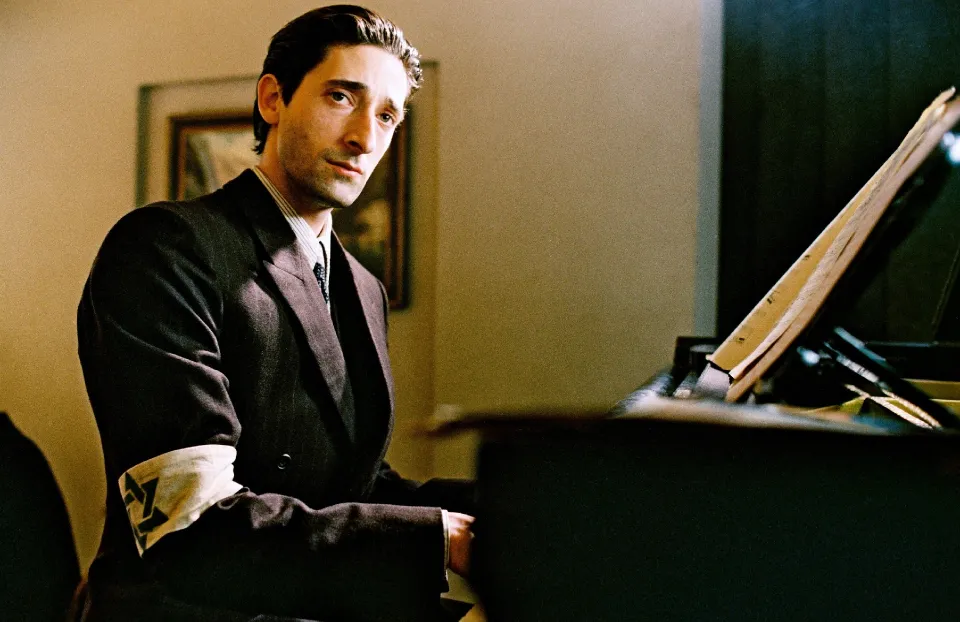#33 The Pianist
Having turned down the chance to direct Schindler's List, Roman Polanski went on to make his own Holocaust epic, The Pianist.
The story of The Pianist follows the plight of the talented pianist Wladyslaw Szpilman during the Nazi occupation of Warsaw. Although set some 60 years in the past and during a war, The Pianist feels incredibly relevant right now as we see Szpilman and his family constantly have to re-adjust in order to find some normalcy in a rapidly degrading situation.
The Pianist is a tale of survival. The descent from normality to social exclusion, then to the ghettos, the camps, living in hiding, and finally into a city completely decimated by war is gradual. By making each of those steps seem so small, we can understand how and why the Polish Jews adapted to their persecution.
It is an experience of the Holocaust and also of World War Two that isn't often represented, that during these monumental world-changing events, there are people still trying to live their lives. Any scrap of normality amid the chaos is desperately sought after and greatly appreciate.
This is perhaps best represented during a scene where the family are waiting to be taken to the concentration camp, they spend their last pennies on a toffee that they carefully share between them. A small moment of family sharing ahead of an ungodly horror.
The progressive decline in living conditions is represented both through the steady draining of the colour palette throughout the film and in lead actor, Adrien Brody's, increasingly gaunt and ghoulish physique.
With the film split into two sections - before and after Wladyslaw Szpilman is separated from his family, who head to a concentration camp - The Pianist increasingly focuses on the dehumanising elements of survival. Wladyslaw is given little opportunity to reflect on the almost certain death of his family, he has to sneak from hideout to hideout in order to evade German capture.
This final section of the film is incredibly quiet and eerie, as Szpilman becomes increasingly rat-like. However, a chance encounter with a friendly Nazi and a piano provides our protagonist an opportunity to rekindle his humanity as he allows his pain to finally leach out into the keys and release his sorrow.
This final section of the film is incredibly quiet and eerie, as Szpilman becomes increasingly rat-like. However, a chance encounter with a friendly Nazi and a piano provides our protagonist an opportunity to rekindle his humanity as he allows his pain to finally leach out into the keys and release his sorrow.
A Memorable Quote
Thank God, not me. He wants us to survive. Well, that's what we have to believe.
Things You May Not Know
- Adrien Brody learned how to play the piano for this role.
- Roman Polanski's parents were both taken to concentration camps during the Second World War, with only his father surviving.
- The first film to win the best film award at the Cesars (the French equivalent of the Oscars) without a single word of French in it.
One of the Greatest of All Time?
Focusing on the same subject matter as Schindler's List, The Pianist does well to avoid being a complete rehash of Steven Spielberg's epic. By being smaller in scale - focusing just on the plight of one family, then one man - The Pianist feels a more visceral experience of the Holocaust and of a desperate quest for survival.
The film maybe dwells slightly too long during the section of the film where Wladyslaw is separated from his family, becoming a little overwhelming in its desperate misery. However, it only serves to make The Pianist more impactful.

Comments
Post a Comment